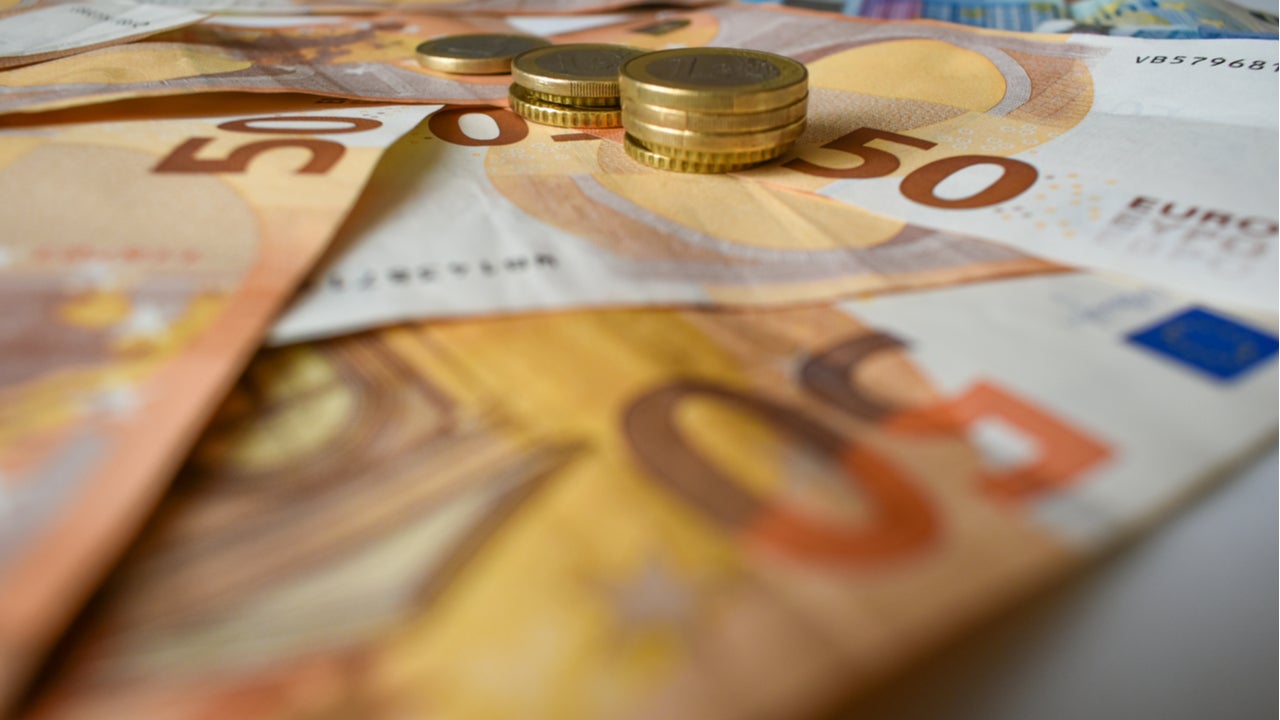
Gross savings in the Eurozone surged by more than 50% in 2020 due to coronavirus related lockdowns and reduced spending, which is expected to result in a consumption boom in 2021.
Ludovic Subran
Ludovic Subran, group chief economist at financial service provider Allianz Group, shared an article on gross savings in the Eurozone crossing more than €450bn ($545.56bn) or 4% of GDP due to reduced spending and movement restrictions imposed due to the coronavirus pandemic. Government support measures such as unemployment schemes, lower taxes and higher subsidies also contributed to the rise in savings.
Two thirds of these excess savings were deposited into bank accounts and the remaining was invested in capital markets. Germany (27%) and Italy (21%) accounted for the highest share of savings invested in equity among the Eurozone countries. Pent-up consumption in 2021 could reach €42bn ($50.6bn) in Germany and €68bn ($82.44bn) in the UK based on the level of excess savings.
Further, another €200bn ($242.47bn) in excess savings could be generated in 2021 due to renewed lockdowns imposed in the first half of 2021. Subran noted that these savings should be utilised effectively to modernise and decarbonise the European economy.
In 2020, gross #savings in the #Eurozone increased by +50%, and “excess savings” stood at >EUR450bn, or >4% of #GDP. The best way to make use of this savings: Accelerate the modernization & #decarbonization of the European #economy. https://t.co/ltvskTyDKJ
— Ludovic Subran (@Ludovic_Subran) April 29, 2021
How well do you really know your competitors?
Access the most comprehensive Company Profiles on the market, powered by GlobalData. Save hours of research. Gain competitive edge.
 Company Profile – free sample
Company Profile – free sampleThank you!
Your download email will arrive shortly
Not ready to buy yet? Download a free sample
We are confident about the unique quality of our Company Profiles. However, we want you to make the most beneficial decision for your business, so we offer a free sample that you can download by submitting the below form
By GlobalData
John Ashcroft
John Ashcroft, an economist, shared an article on the Federal Reserve’s decision to keep interest rates near zero as the US economy begins to recover from the impact of the coronavirus pandemic. The Fed, however, noted that it would continue to provide support by buying bonds despite experts raising concerns over rise in inflation.
The Fed expects to keep interest rates low and retain government-backed bond buying until the economy recovers substantially. Officials are aiming to reach an average inflation rate of more than 2% this year, before raising interest rates. Although unemployment rate has fallen from a peak of 14.8% in April to 6% and retail spending has improved, the economy still needs to recover further for the Fed to dial back its support.
Economists note that the government’s spending policies could push inflation rates even higher forcing the Fed to withdraw its support earlier than expected. Fed officials, however, note that the rise in inflation is only temporary and that prices could settle down by the end of the year.
Fed Leaves Interest Rates Unchanged as Economy Begins to Heal
The Federal Reserve said the economy had “strengthened” but opted to continue providing support while playing down a rise in inflation @nytimes https://t.co/COm8QQzrr5— John Ashcroft (@jkaonline) April 29, 2021
Jonathan Portes
Jonathan Portes, professor of economics at King’s College London, shared an article on the latest coronavirus restrictions imposed in the UK that focus mostly on limiting social and personal interactions. The restrictions imposed on interactions for economic and commercial purposes have been limited to minimise the negative impact on the country’s economy.
Economists have pointed out that the government is prioritising GDP over other aspects, which is fundamentally incorrect as there is no basis for this in conventional economics. Since personal interactions with family and friends do not generate any monetary value or contribute to the GDP, the government is placing no value on them.
Government interventions in an individual’s actions translate into GDP being more important than social lives, which is incorrect even from an economic perspective. The decision to prioritise GDP seems to be a political choice rather than an economic imperative, the article added.
(2/2) IMO improving the quality/quantity of social care will almost certainly make us "better off" – it will improve welfare! But it probably won't raise GDP or save the government money. And that's fine. I wrote about this general point here https://t.co/9Blf3Jb9jm
— Jonathan Portes (@jdportes) April 29, 2021
Ben Casselman
Ben Casselman, a reporter with The New York Times, shared an article on the US economy showing signs of the fastest recovery in decades during the first quarter of 2021. Increase in vaccinations and lifting of coronavirus-related restrictions boosted consumer confidence and spending on travel, dining and healthcare.
The US GDP in Q1 grew by 1.6% compared to 1.1% in Q4 2020 and on an annualised basis growth rate was 6.4%. The total economic output in the country is expected to reach pre-pandemic levels by summer with the economy expanding by 3.1% in Q2 or 13% on an annualised basis.
Government relief payments and households savings of more than $4.1tn in Q1 were attributed to be reasons behind the increased consumer spending by 2.6% during the quarter. Hiring has also picked up as unemployment rate dropped to 6% and unemployment claims declined sharply over the past few weeks.
https://twitter.com/bencasselman/status/1387746411056443392






Related Company Profiles
Allianz SE
The New York Times Co